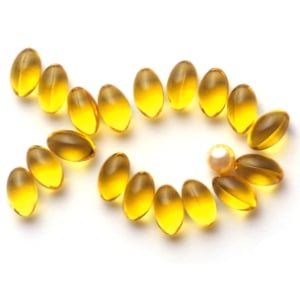
Omega-3 fatty acids, often taken to boost health, appear to increase the risk of childhood allergies and prostate cancer, according to two recent studies.
Newborns with high levels of unsaturated fats in their blood were more prone to develop an allergy than those with lower blood concentrations, Swedish experts have discovered.
"It is already known that unsaturated fatty acids inhibit activation of the immune system. This can be useful when you are old," Agnes Wold, a physician at the clinical microbiology department of Gothenburg's Sahlgrenska University Hospital, said in a statement.
"But a baby's immune system needs to get a kick-start, otherwise it does not develop properly," said Wold.
Previous research has indicated that children who at an early age were given fish, which is famously high in omega-3 fatty acids, were less likely to get an allergy.
Prostate cancer concernsSeparately, a study published in Britain's Journal of the National Cancer Institute found that three omega-3 fatty acids were associated with an increase of between 43% and 71% in the risk of developing prostate cancer.
The biggest increase in risk was for so-called high-grade prostate cancer, whose tumours are more likely to be fatal.
Led by scientists from the US Fred Hutchinson Cancer Research Center, the study amplifies previous findings in 2011 that suggested these fatty acids play an unexplained role in initiating prostate cancer.
"Recommendations to increase ... [omega-3] intake, in particular through supplementation, should consider its potential risks," said the research paper.
In May, an Italian-led study also showed that fish oil supplements rich in omega-3 fatty acids were not beneficial for patients at high risk of cardiovascular troubles and already under medication.
Previous clinical trials had suggested the supplements could reduce cardiovascular risks for patients suffering from cardiovascular disease or who had already suffered cardiac arrest.
However, people were cautioned against avoiding fish on the basis of these findings.
"Fish is so much more than just omega-3 fatty acids. One cannot conclude from our study that pregnant women and young children should not eat fish," said co-author, Prof Ann-Sofie Sandberg.




 Publications
Publications
 Partners
Partners















